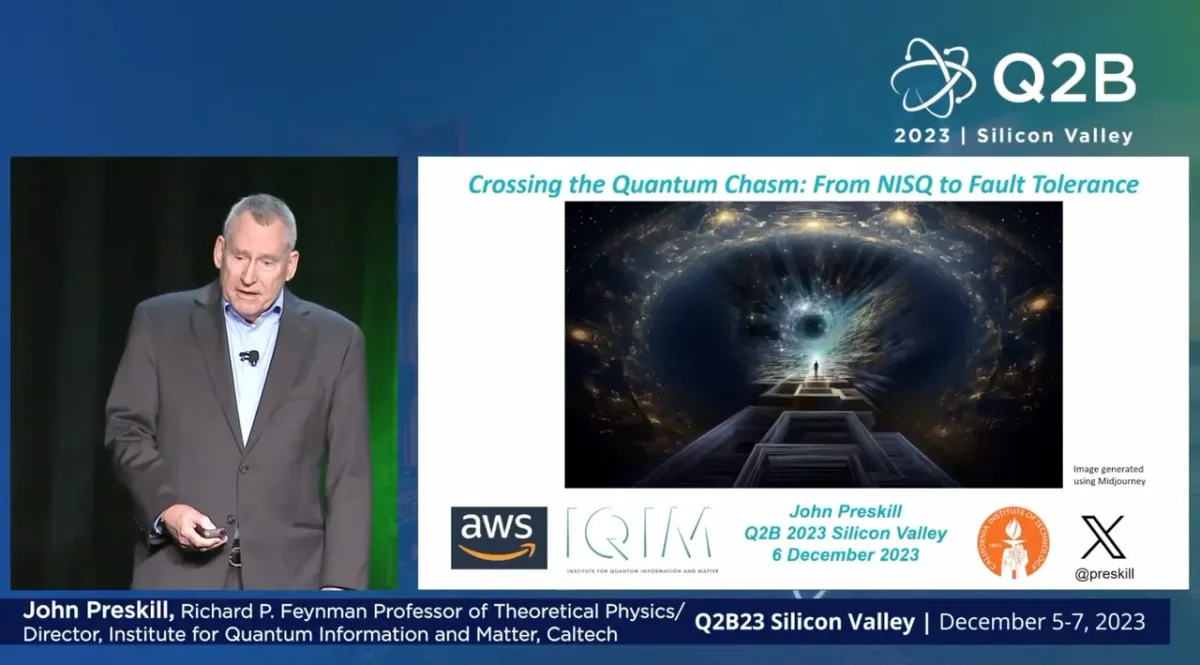Professor John Preskill of Caltech, a leading expert in quantum computing, delivered a thought-provoking presentation at the Q2B conference. Here's a breakdown of the key points:
Current state of quantum computing:
- We are in the NISQ era, where near-term quantum computers exist but offer limited practical value.
- While these platforms show promise for scientific research, commercially viable applications requiring "quantum advantage" haven't been demonstrated yet.
- Existing hardware faces challenges like noise and limitations in qubit count.
The path to fault-tolerant quantum computing:
- Fault tolerance, the ability to correct errors during calculations, is crucial for achieving quantum value.
- Quantum error correction (QEC) codes exist, but implementing them requires significant overhead in terms of qubit resources.
Recent advancements in QEC research are encouraging:
- Eraser conversion: Engineering errors to be easier to detect and correct.
- Bias noise: Leveraging specific noise characteristics for better QEC performance.
- New, efficient codes: These offer improvements in terms of resource requirements and error correction capabilities.
Hardware platforms and their challenges:
- Rydberg atom arrays: Promising for near-term QEC implementation but require overcoming limitations like repeated syndrome measurement and clock speed.
- Superconducting qubits: Vulnerable to cosmic ray-induced errors, demanding solutions like radiation hardening or error-tolerant coding schemes.
The importance of exploration and diversification:
- Developing various hardware approaches in parallel is crucial as the leading technology in 10 years might not be the ultimate answer.
Key takeaways:
- Quantum computing is a long-term endeavor with gradual progress.
- Fault tolerance is essential for attaining true quantum value, and current research efforts are promising.
- Continuous investment and exploration across diverse hardware platforms are critical for the field's advancement.
Further discussion:
- The talk also addressed ethical considerations surrounding quantum computing, particularly in areas like cryptography.
- Additionally, questions from the audience explored topics like the specific methods for generating new QEC codes.



Member discussion: